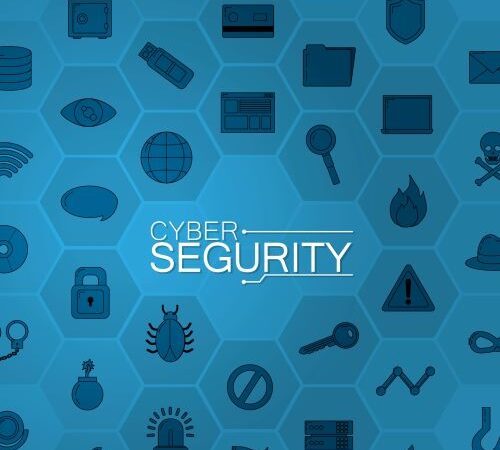From connecting with loved ones to managing finances and even healthcare, the internet has made life easier for everyone, including seniors!
However, with these conveniences come potential risks, especially in the realm of cybersecurity. Protecting your personal data is essential to ensure a safe and enjoyable online experience. In this blog post, we’ll explore some practical cybersecurity tips tailored to seniors, designed to help you keep your data secure.
- Passwords and Authentication
Let’s start with the basics: passwords. Creating strong, unique passwords for your online accounts is a crucial step in safeguarding your data. Avoid using easily guessable information like birthdays or names. Instead, opt for a mix of letters, numbers, and special characters. Also, consider using a password manager to keep track of your login credentials securely. Always enable two-factor authentication when available, adding an extra layer of security to your accounts.
- Be Wary of Phishing
Phishing emails are crafty messages designed to deceive you into disclosing personal information or clicking on harmful links. Seniors are often targeted because of their perceived vulnerability. Be cautious when opening emails from unknown senders, and never click on suspicious links or download attachments unless you’re sure of their legitimacy. When in doubt, contact the supposed sender through a different communication channel to verify the message’s authenticity. Also, be aware that phishing is not limited to emails! If you receive a call from an unfamiliar local number, with the caller claiming to represent Amazon customer service or Publisher’s Clearing House – it’s likely a scam aimed at tricking you into revealing your banking or account information!
- Keep Software Up to Date
Using outdated software may expose your devices to potential security risks. To safeguard your systems from known vulnerabilities, it is essential to routinely update your operating system, web browsers, and antivirus software. Many devices have an option for automatic updates, which can simplify this process.
- Secure Your Wi-Fi Network
If you have a Wi-Fi network at home, ensure it’s password-protected with a strong passphrase. Avoid using easily guessable names like “SmithFamily” or “12345678.” Additionally, enable WPA3 encryption for added security. It’s also a good idea to change your router’s default login credentials to something unique.
- Safe Online Shopping
Online shopping is convenient, but it can also be risky. Stick to reputable websites and always check for “https://” in the website’s URL before entering sensitive information. Avoid saving your credit card information on multiple sites, and regularly review your bank statements for any unauthorized charges.
- Educate Yourself
Knowledge is your best defense against cyber threats. Stay informed about the latest scams and security best practices. Organizations like AARP and the Federal Trade Commission (FTC) offer valuable resources and articles specifically tailored to seniors’ cybersecurity concerns.
- Social Media Privacy
If you use social media platforms, review and adjust your privacy settings to control who can see your posts and personal information. Be cautious about sharing personal details, such as your full birthdate or home address, publicly. And it’s a truly terrible idea to post info that reveals info indicating you are not home!
- Trust Your Instincts
Sometimes, your instincts can be your best guide. If something online seems too good to be true or raises suspicion, trust your gut and proceed with caution. Avoid disclosing personal information over the phone or online unless you initiated the contact and are certain of the recipient’s identity.
Staying safe online is a shared responsibility, regardless of age. By following these cybersecurity tips, you can protect your personal data and enjoy a worry-free online experience. Remember, it’s never too late to learn and implement good cybersecurity practices. So, embrace the digital age, but do so with the knowledge and tools to keep your data secure. Your online safety is worth it!
#CybersecurityForSeniors #DataSecurity #OnlineSafety #PhishingAwareness #InternetPrivacy #PasswordManagement #SeniorOnlineProtection #DigitalLiteracy #SafeOnlineShopping #SeniorInternetSecurity

























